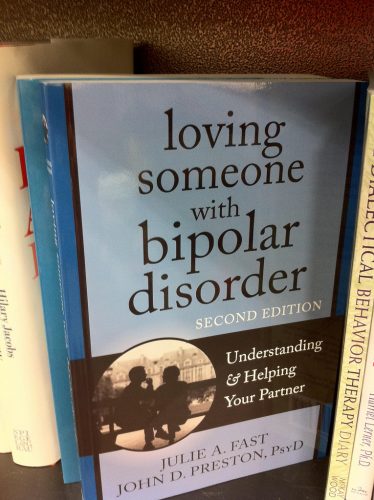Getting a diagnosis for bipolar disorder is not only challenging to accept for the patient but also for their family members. Although the illness takes years to confirm, the parents and siblings who have always been by their side undoubtedly wish that the disease is something else – something curable. After all, nobody wants to believe that his or her loved one has a condition that will continue to weaken that person throughout their life until the test results are out.

“Bipolar Disorder is a mental health issue where neurological differences can be observed between those who have and do not have this diagnosis.” That is according to Catherine “Katie” Ness, MA, LCPC. If the bipolar patient seems quite troubled by the news, to the point that he or she cannot function properly, a specialist may encourage you to sign him or her up to therapy. Talking to a counselor does wonders to an ill individual’s disposition, frankly speaking. It can clear their mind and make it easier to accept the disorder; thus, your loved one can live without hating their condition.
To further support someone dear to you in this situation, feel free to do the following.
- Improve Your Knowledge About Bipolar Disorder
Considering you have taken care of the bipolar individual since you noticed the disease’s likely symptoms, then you at least have an inkling of the ups and downs that he or she experiences because of it. Once the diagnosis comes, you should spend extra time studying about the illness so that you can relate when the doctor uses medical jargons or speaks of possible treatments. “Bipolar disorder is probably the main psychiatric disorder where medication is absolutely essential.” As John Preston, PsyD elaborates on it.

- Understand Their Triggers Factors
Every patient deals with a different factor that triggers their symptoms. For some, it’s stress and lack of sleep. For others, it’s the changing of the seasons. You have to be aware of all these things early so that you know what is happening to your family member.
- Know Your Loved One’s Thoughts
Learning about the bipolar patient’s thoughts and emotions should not merely be the therapist’s job. As somebody that he or she shares a roof with, you also need to figure out what they think of the treatment, where they are at emotionally, et cetera. That will allow you to understand whether therapy is working or not.

- Plan For The Unexpected
Since bipolar disorder is a condition that elicits two extreme illnesses – mania and depression – your family should know what to do when your ill loved one exhibits either. Make a separate plan for when it shows indoors or outdoors; decide what every sibling or parent is supposed to do. This way, you can coordinate your actions. That is because “Some patients with bipolar disorder may have trouble complying with medication and/or dealing with the consequences of the disorder.” Simon Rego, PsyD said.
- Go Through The Treatment As A Family
Lastly, if you can get all the members of your brood to attend therapy with the bipolar patient, it may mean the world to the latter. He or she will realize how invested everyone is to their healing, to the point you don’t mind forgoing your social activities to be there to support him or her.

Bipolar disorder is an incurable disease – that’s a fact. It can flare up anytime, and no one can ever see it coming – that is another fact. Nevertheless, when you try to deal with it as a family, there’s no doubt that a bipolar patient will be able to manage the symptoms sooner than later.